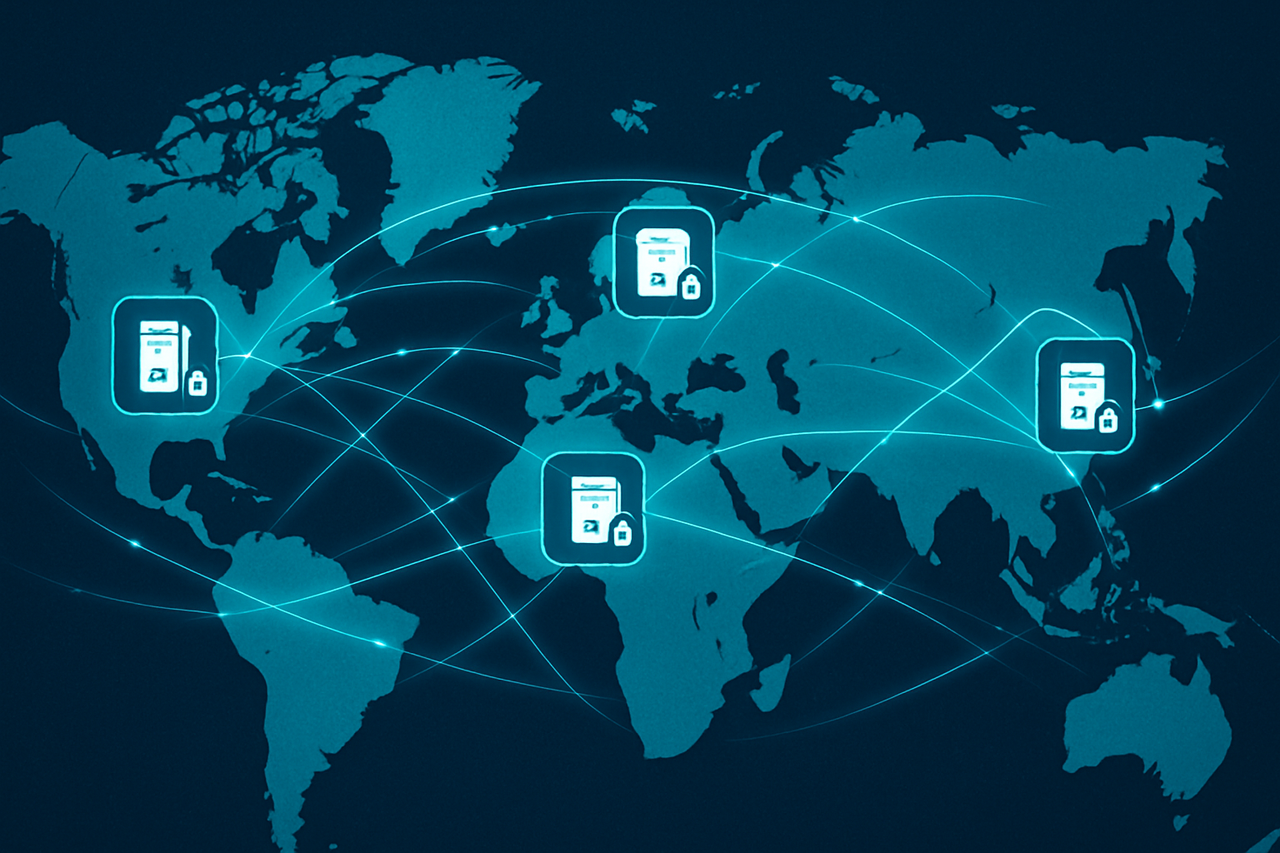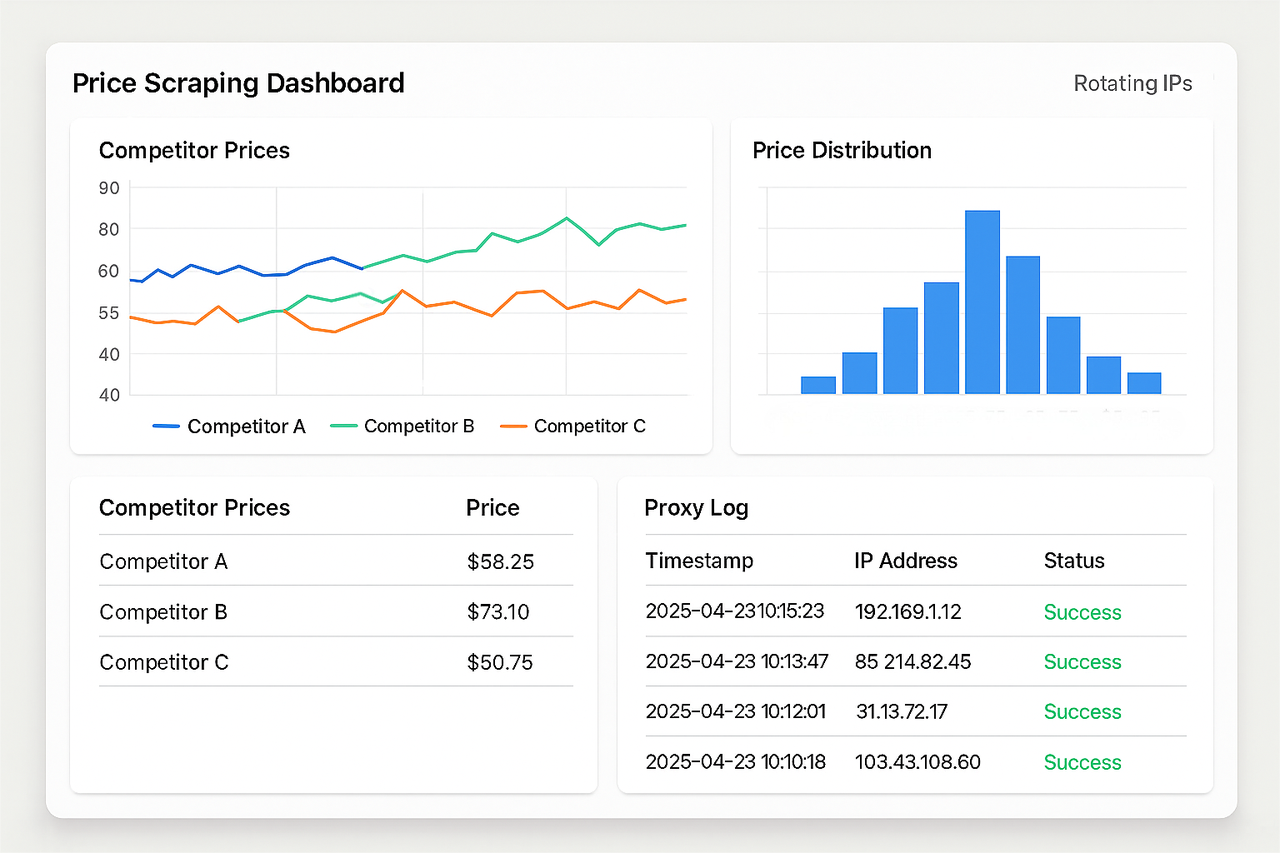2025-06-26 14:14 5134 read
 Global map illustrating international uses for proxies across different locations
Global map illustrating international uses for proxies across different locations
The internet in 2025 is faster, smarter—and, let’s be honest, trickier to navigate. With content restrictions, tracking cookies, and digital walls everywhere, proxies have become go-to tools for people and businesses looking to take back control.
But what are the smartest, most effective uses for proxies this year?
Whether you're trying to stay private online or collecting data on a global scale, proxies have moved far beyond hacker lore—they're everyday digital essentials. In this article, we’ll unpack the top 10 uses for proxies in 2025, explain the differences between proxy types, and show you exactly how they’re changing the game in industries around the globe.
Types of Proxies: Residential vs. Datacenter
Before we dive into the actual uses, it’s good to get a handle on the two major proxy types:
| Proxy Type | Description | Best For |
| Residential Proxy | Routes traffic through real IPs tied to actual devices and ISPs | Staying under the radar, beating IP blocks |
| Datacenter Proxy | Hosted in high-speed data centers, not linked to real users | Speed-heavy tasks like SEO testing and web crawling |
👉 Learn more in our deep dive into residential vs. datacenter proxies.
Top 10 Uses for Proxies in 2025
1. Ad Verification and Stopping Fraud in Its Tracks
Digital ad budgets are massive—and ad fraud remains a massive problem. Marketers use residential proxies to mimic real users across the globe and make sure their ads appear exactly where and how they should. It's the best way to check placements and block fraudsters from eating into your ROI.
2. Web Scraping and Competitive Research
 Example dashboard showing automated web scraping and uses for proxies in data collection
Example dashboard showing automated web scraping and uses for proxies in data collection
In today’s data-hungry economy, businesses scrape the web for pricing, trends, and competitor insights. Datacenter proxies are fast and efficient for bulk scraping, while residential proxies help slip past anti-bot barriers on tougher sites.
3. Accessing Geo-Restricted Content
From streaming shows not available in your country to unlocking global e-commerce deals, proxies help you virtually hop borders. Just route your connection through a different region to access the web like a local.
4. Managing Social Media Without Getting Banned
Running multiple Instagram, TikTok, or LinkedIn accounts? Social platforms are quick to flag repeated logins from the same IP. Rotating residential proxies help marketers and influencers stay under the radar while automating posts and engaging with audiences.
5. Price Monitoring and E-Commerce Intelligence
Online retailers use proxies to spy on competitors without tipping them off. By rotating IPs, businesses can track pricing, inventory, and promo changes without getting blocked or throttled.
6. SEO Monitoring and SERP Tracking
Search results vary depending on where you are. SEO pros use proxies to simulate searches from different cities or countries, helping them track keyword rankings and optimize content for local visibility.
7. Cybersecurity and Ethical Hacking
Cybersecurity teams rely on datacenter proxies to run stealthy penetration tests. These proxies help simulate attacks and identify weak spots in security systems—without revealing the tester's real identity.
8. Academic Research and Large-Scale Data Collection
Students and researchers often hit paywalls, limits, or geo-blocks when accessing scholarly resources. Proxies allow uninterrupted access to databases, journals, and public archives—critical for collecting unbiased, global data.
9. Flash Sales, Sneaker Drops, and Ticket Bots
Love scoring limited-edition sneakers or concert tickets? Many buyers use rotating residential proxies to mimic real traffic, dodging anti-bot filters and snapping up products before they sell out.
⚠️ Heads up: Always check the legal and ethical rules in your region before automating purchases.
10. Boosting Your Personal Privacy
Last but not least, proxies are a solid way to shield your digital footprint. Whether you're dodging tracking ads, avoiding ISP snooping, or browsing more safely on public Wi-Fi, a proxy adds an extra layer of privacy to your daily browsing.
Comparison Sheet: Residential vs. Datacenter Proxy Use Cases
| Use Case | Best Proxy Type | Why It Works Best |
| Ad Verification | Residential Proxy | Emulates real-world behavior to slip past detection |
| Web Scraping | Datacenter Proxy | Fast and budget-friendly for mass data pulls |
| Unblocking Content | Residential Proxy | Real IPs help dodge location-based restrictions |
| SEO Research | Datacenter Proxy | Speed and scalability for repeated queries |
| Social Media Automation | Residential Proxy | Looks like genuine users to platforms |
| Cybersecurity Testing | Datacenter Proxy | Fast and stealthy for attack simulations |
| Academic Research | Residential Proxy | Bypasses access caps on academic and public resources |
| Sneaker/Ticket Buying | Rotating Residential | Rotates identities for fast-paced buying environments |
| Price Intelligence | Depends on Site | Choose speed or stealth based on scraping complexity |
| Personal Privacy | Either | Pick what suits your device, budget, and preferences |
Conclusion
Proxies have come a long way from their underground reputation. Today, they’re essential tools for navigating a digital world full of restrictions, risks, and region locks.
From scraping data to securing privacy, the number of uses for proxies in 2025 is only growing. The trick is picking the right type for your task—residential proxies for stealth and realism, datacenter proxies for speed and scale.
🎯 Ready to level up your online capabilities? 👉 Find the Perfect Proxy Plan Now
Your smarter, safer internet experience starts here—with the right proxy in your corner.